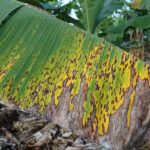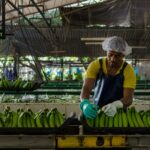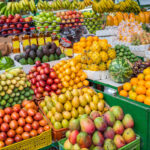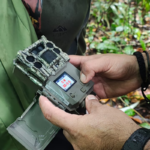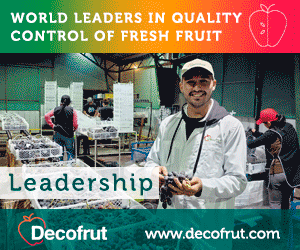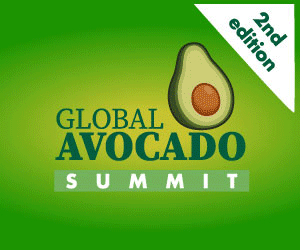Film Review: Bananaland, confronting faces of a commodity fruit

By Fresh Fruit Portal editor Matthew Ogg
The last time someone made a documentary about controversies surrounding the banana industry, they got sued.
Back in 2009, Swedish filmmaker Fredrik Gertten may have known what he was up against when documenting the effects of pesticide DBCP on Nicaraguans, who as the legal record goes, 'claimed to be banana workers'. The plantations they claimed to work on were claimed to belong to the Dole Food Company, who promptly took Gertten to court after the movie 'Bananas!*' premiered at the Los Angeles Film Festival.
But as it turned out, Dole dropped the case a few months later. Not only did a court rule that the Swede and his crew be compensated for the costs, but the affair came in a two-for-one package; a second movie was made about the Dole lawsuit called 'Big Boys Gone Bananas!*, again with an exclamation mark and an asterisk in case the film's content wasn't enough to grab attention.
But the only punctuation mark in the banana movie I'm about to review is a colon, separating the seemingly innocent from the violent and disconcerting.
Directed by Jason Glaser and Diego Lopez, 'Bananaland: Blood, Bullets and Poison' is not for the faint-hearted, and will be screening at the event 'Equal Exchange Banana Conference 2014: The Future of Authentic Fairtrade Bananas' in Boston on March 21.

Unlike Gertten's film which focuses on a specific case, Bananaland's scope is broader, combining historical narrative with more recent experiences of people either living near or working on banana plantations.
From the massacre of workers in Colombia in 1928 to Ecuadorian families living with aerial spraying of pesticides in close proximity, the film shows how many have suffered under the influence of the banana trade; rather than focusing on a particular business throughout, Bananaland is a critique of the industry at large, its business model, and how its modus operandi affects those at the bottom of the supply chain.
These people are referred to as 'guinea pigs' a couple of times, in light of the fact that while many pesticides are either banned or given very strict rules for usage in the Northern Hemisphere, these chemicals somehow make their way to farms in developing countries.
"What I want for my people, hard-working people of my village, is real progress. We want the aerial spraying to end, we want them to stop killing us, because they are eradicating our livelihood," says union leader and activist Jaime Mosquera toward the end of the documentary.
"What I want for my people is to have a dignified salary, for us to be able to survive, and we don’t want to be exploited anymore. So I say to each of you Americans, be aware of what you’re eating."
The film is rich in visuals, particularly animations in its context-setting narratives about the historical influence of banana multinationals in Latin America, backed by Washington to determine political policies in what gave rise to the term 'Banana Republic'. As Mosquera speaks, the screen cuts to a stop motion video of a ripe banana going black and rotten.
"Take notice of the conditions we work under, and how much we suffer in the fields in order to export this fruit to you, while the businessmen enrich themselves, and gorge on our work, our efforts and our youth."
While Mosquera's words are heavy, they cannot compare to the emotions evoked when listening to the stories of families with special needs children - alleged to be in that state due to the use of pesticides - or families terrorized by self defense group AUC in Colombia, whose alleged links to Chiquita led the multinational to be given a US$25 million fine by the United States Justice Department in 2007.
Dan Koeppel, author of the book 'Banana: The Fate of the Fruit that Changed the World', is a key voice in the film. I would argue that his comments in the film are much bolder than when he writes. His frank presence brings a counterpoint between interviews with those directly affected by the banana trade.
"Honestly, you cannot get involved in the reality of the banana world without getting really angry and wanting to do something," he says.
"The banana industry does work to slap down anyone, whether it's a lawyer, whether it's a filmmaker, whether it's a newspaper reporter, whether it's an activist, they'll come after anyone who threatens their profit margin."
It would have been good to see banana traders or importers interviewed, especially given so many of them now have corporate social responsibility (CSR) officers and have switched large volumes of bananas to Rainforest Alliance-certified, GlobalG.A.P.-certified, organic or fairtrade fruit. It may be because big banana players are not so easy to get interviews with, but I suspect it's more because the directors didn't want to draw attention to the current operations of certain companies.
Money talks and it comes from consumers, who ultimately are the target market of this film. If buyers demand more fairtrade bananas, that's what the market will bring them.
It's just under a week now since fairtrade fortnight drew to a close, and only a few days have passed since two multinationals announced they would form the world's largest banana company, which is expected to create a "dramatic acceleration" for banana value. Such a big event like this, not just in the produce world but on Wall Street too, is cause for reflection.
Both Chiquita and Fyffes have pledged a continued commitment to environmental and social responsibility, which is positive. Simple economic theory would dictate that a more concentrated market would give banana companies more buying power and the growers less selling power, but the situation is more complex than that. For growers who can find the resources, direct export channels are opening up to supermarkets around the world, and the organic and fairtrade movements are very strong.
It would be wonderful to see some of the synergies gained from the new partnership used to further improve the living conditions of the growers they source from, and to have the largest companies using their market power to try and outcompete each other on social and environmental responsibility fronts.
By addressing the concerns of growers in the developing world with more compassion, any banana company can get on the long road of raising awareness amongst consumers about how their food is grown, and what their decisions mean. Ideally, with this understanding consumers would be willing to pay more for their bananas, and that premium could be shared by everyone. Sound idealistic? Well yes, but so did the concept of bringing fresh tropical fruit to consumers in colder climes more than a century ago.
Like Koeppel says: "It's not so much why do apples do cost more. It's why do bananas cost less?"
Photo: www.shutterstock.com














